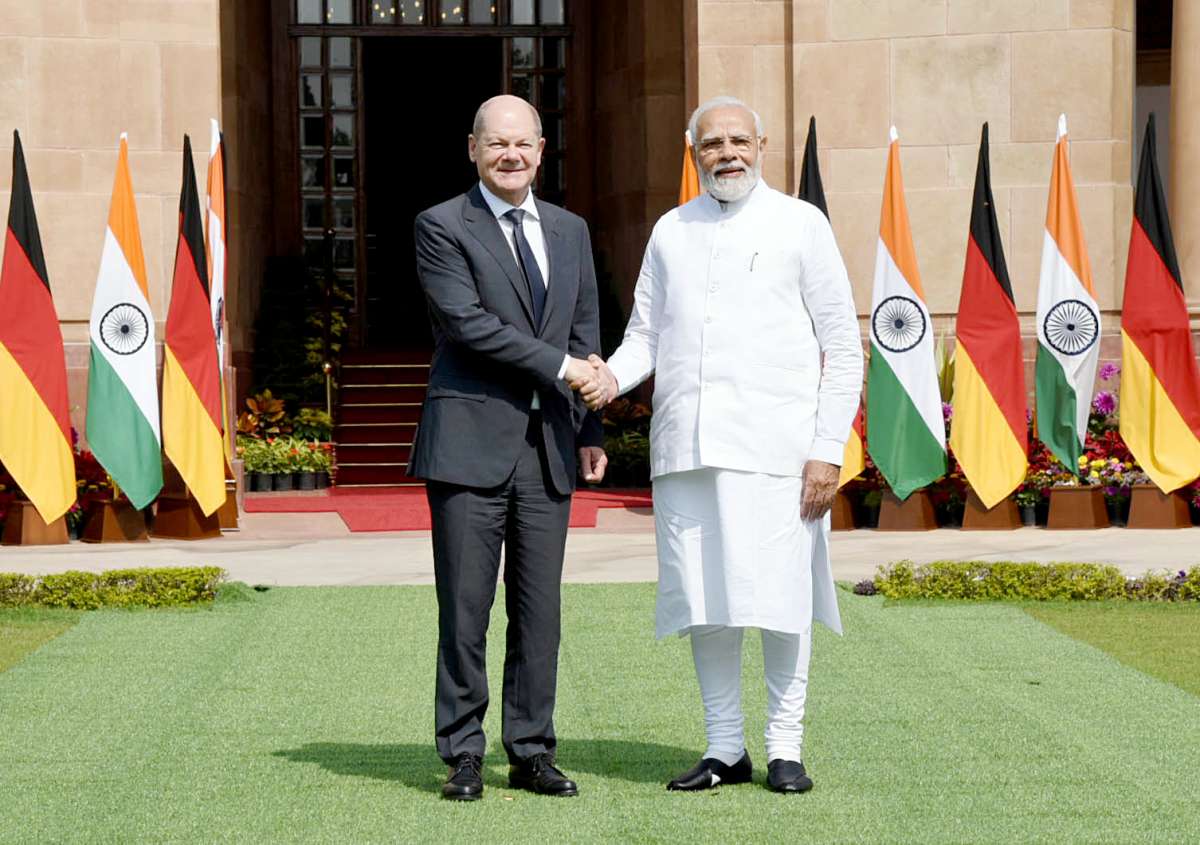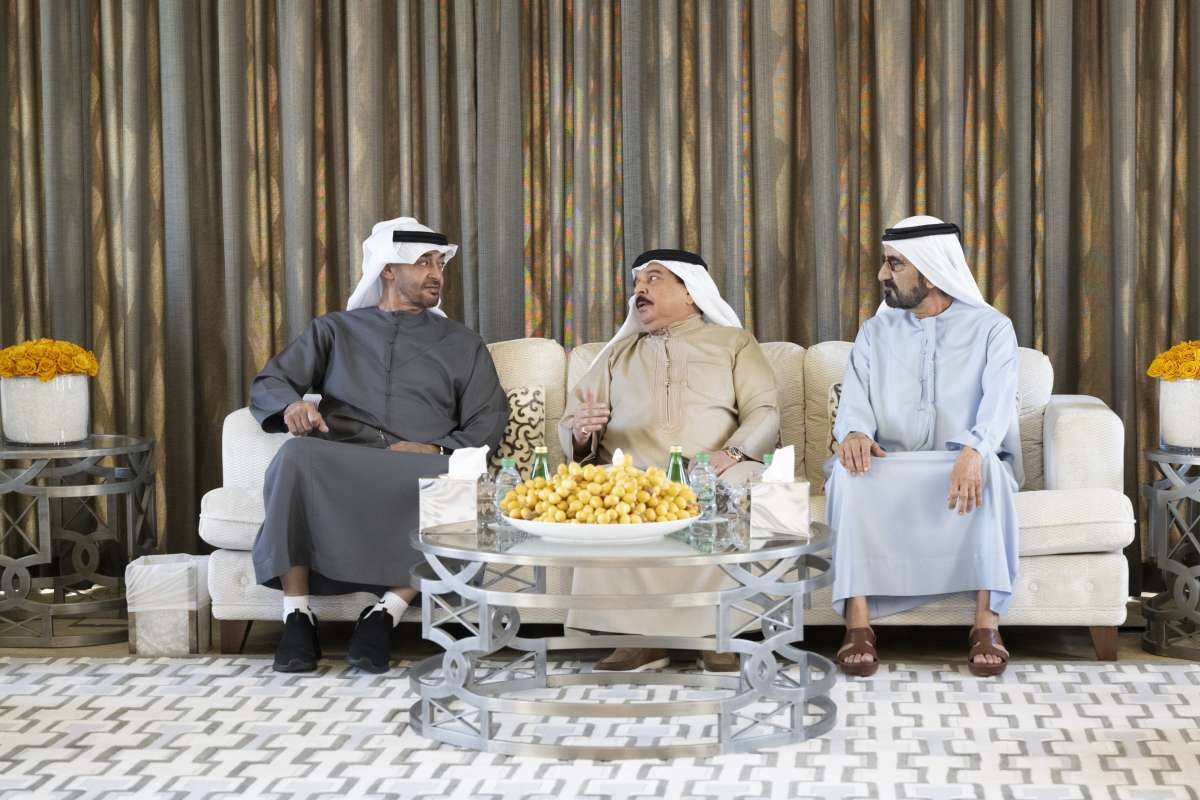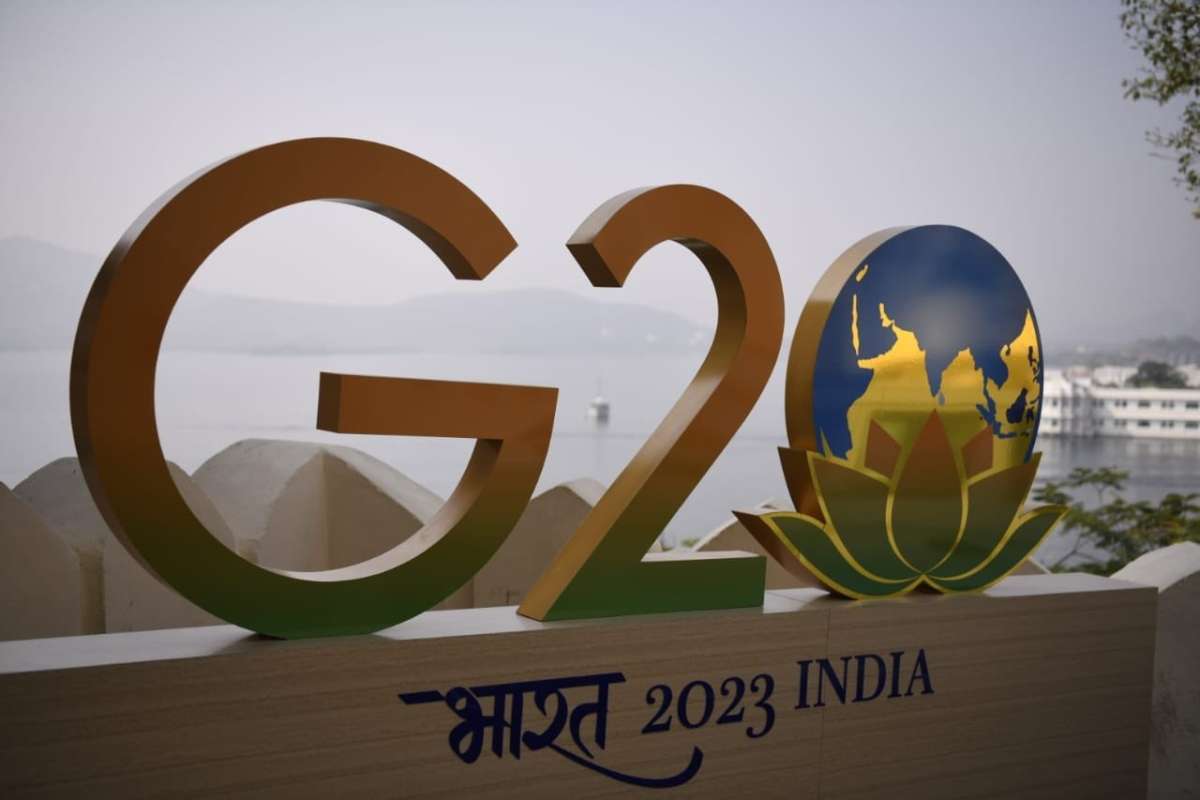German Chancellor says India holds the G20 presidency at a “difficult point in time” and was confident that “India will fully comply with what needs to be done in that regard”…reports Asian Lite News
Prime Minister Narendra Modi and German Chancellor Olaf Scholz held delegation-level talks in the national capital. The meeting was attended by External Affairs Minister S Jaishankar, National Security Advisor Ajit Doval, and other dignitaries.
The Ministry of External Affairs (MEA) tweeted that the two leaders will review progress on key outcomes of the 6th IGC held in May 2022. Will discuss ways to strengthen defence and economic cooperation, enhance talent mobility and widen S&T collaboration, it added.
Modi noted that the Covid-19 pandemic and the Ukraine conflict had negatively impacted developing countries, and called for joint efforts to address these problems. “We are stressing on this even during India’s presidency of the G20,” he said at the joint media interaction, speaking in Hindi.
“Since the beginning of the developments in Ukraine, India has insisted on resolving this dispute through dialogue and diplomacy. India is ready to contribute to any peace process,” Modi said.
Scholz pointed to the immense losses in Ukraine, including destruction of infrastructure and energy grids, and referred to the war as a “major catastrophe”. He said: “But above all, it is a disaster, a catastrophe because we know this war violates a fundamental principle to which we had all been agreed for such a long time, and that is that you do not change borders through the use of violence.”
While calling for upholding international law, Scholz added: “Thus, it is important that in the United Nations too, we time and again state very clearly where we stand on this subject matter.” Scholz noted that India holds the G20 presidency at a “difficult point in time” and said he is confident that “India will fully comply with what needs to be done in that regard”.
India has refrained from openly criticising the Russian invasion, though Modi told Russian President Vladimir Putin at a meeting last September that “today’s era is not of war”. India has abstained on almost all Ukraine-related resolutions at UN bodies, including the General Assembly’s adoption of a resolution this week that asked Russia to immediately withdraw its troops from Ukraine.
Foreign secretary Vinay Kwatra told a media briefing that discussions between the two leaders on the Ukraine crisis reflected a “deep understanding and appreciation” of developments in Europe, how they have impacted the developing world, and what both countries can do jointly to strengthen the constituency of peace.
The Prime Minister has consistently called for resolving the situation through dialogue and diplomacy since peace will be beneficial for developing countries, which have been impacted the most by food, fuel and fertiliser insecurity, Kwatra said.
Modi said security and defence cooperation could become an important pillar of the India-Germany strategic partnership, and there is active cooperation between the two sides to fight terrorism and separatism. “Both countries also agree that concerted action is necessary to end cross-border terrorism,” he said.
He called for reforms of multilateral institutions so that they reflect contemporary global realities. In this context, he pointed to the work being done by India and Germany within G4 to reform the UN Security Council.
Modi called on Germany, India’s largest trade partner in Europe, to take advantage of opportunities opened up by the “Make in India” and “self-reliant India” initiatives. The migration and mobility partnership agreement signed by the two sides last December will further deepen the relationship, he said.
Scholz too held up the migration pact as a model agreement, and said: “Many skilled workers and qualified personnel from India have seized the opportunity.” The agreement will help Germany address challenges in key areas such as research, IT and software with skilled personnel from India, he said.
He noted 1,800 German companies active in India have created tens of thousands of jobs and said he expects the number to go up massively. Germany is keen on deepening trade ties between the European Union (EU) and India and wants negotiations on free trade and investment protection agreements to be speedily concluded. “I personally will make sure that this does not drag on,” he said.
Scholz said fighting climate crisis — “the central topic for the future of mankind” — figured in his talks with Modi and the two sides need to expand cooperation under their green and sustainable development partnership in areas such as solar, power, biomass and green hydrogen.
The two countries adopted the “India-Germany Vision to Enhance Cooperation in Innovation and Technology”, which envisages cooperation in clean technologies, including green hydrogen, digital technologies, including fintech, artificial intelligence, 5G and 6G, and standardising policy for innovation.
ALSO READ-Scholz lauds India’s IT, software boom









